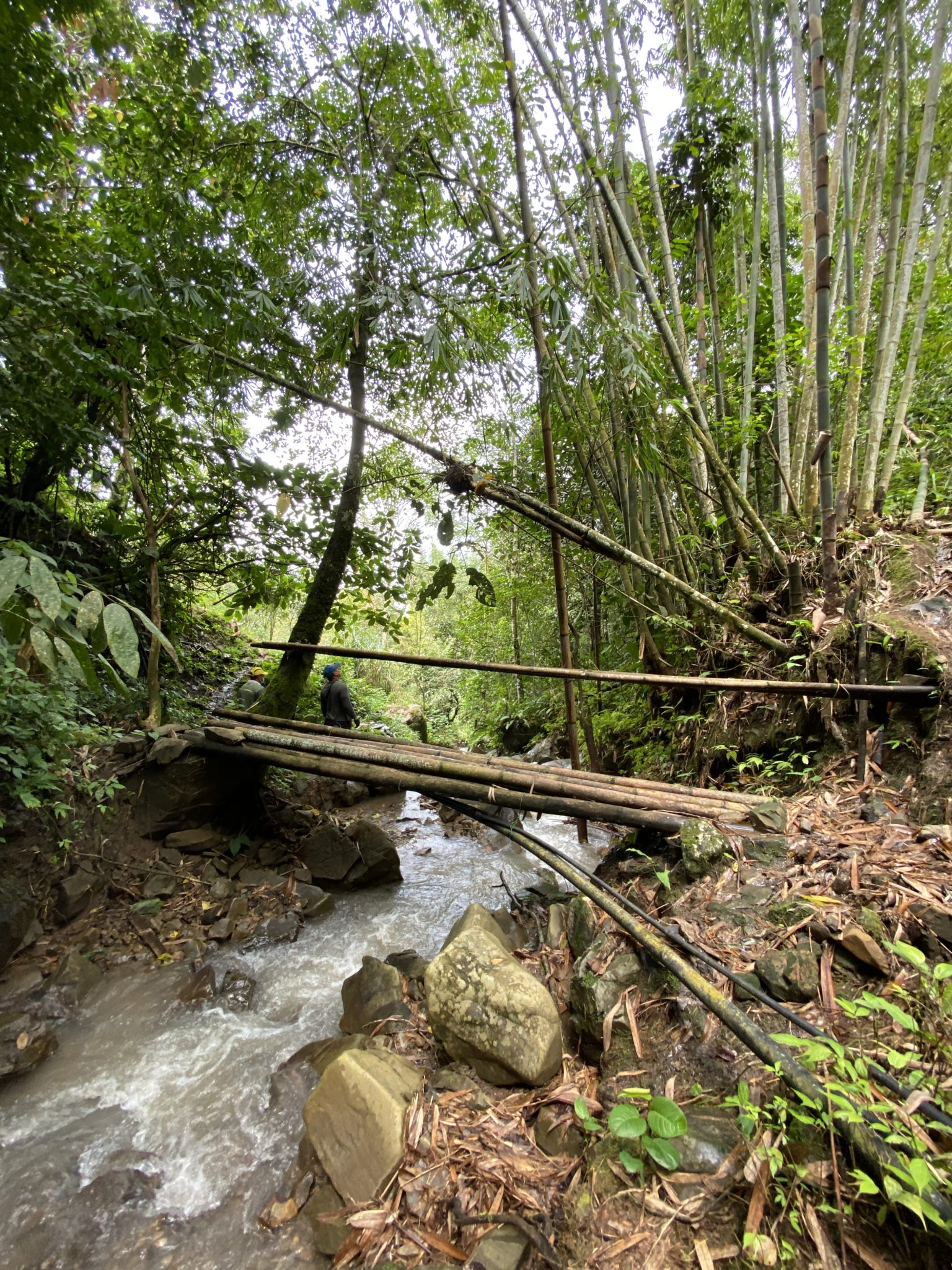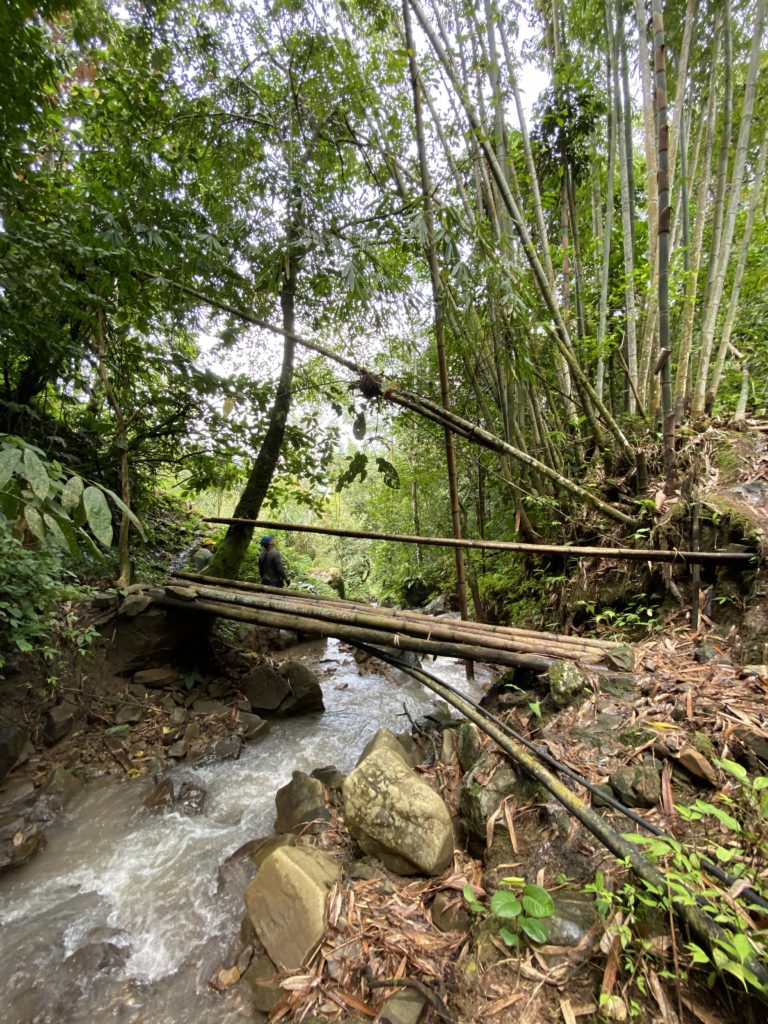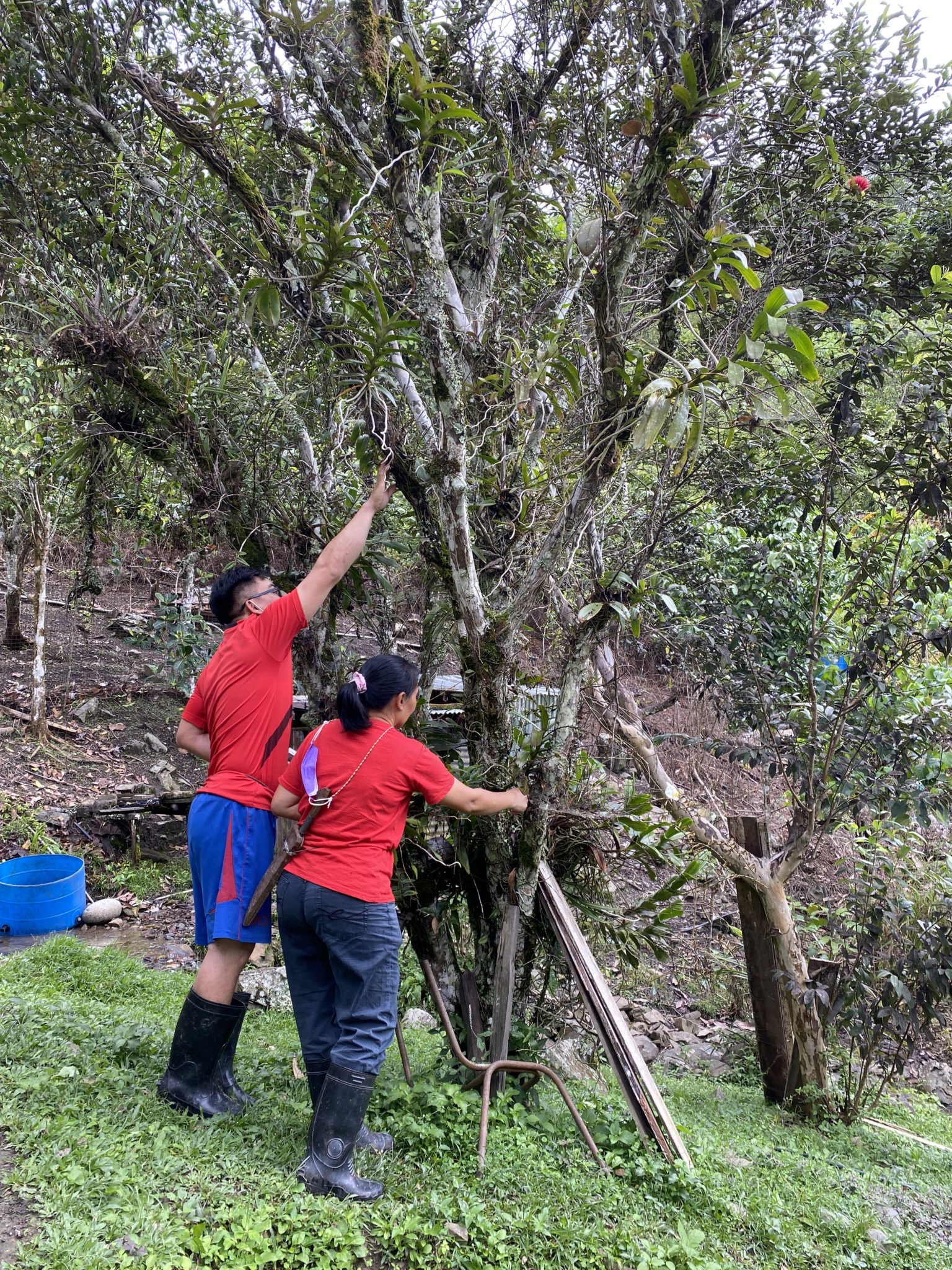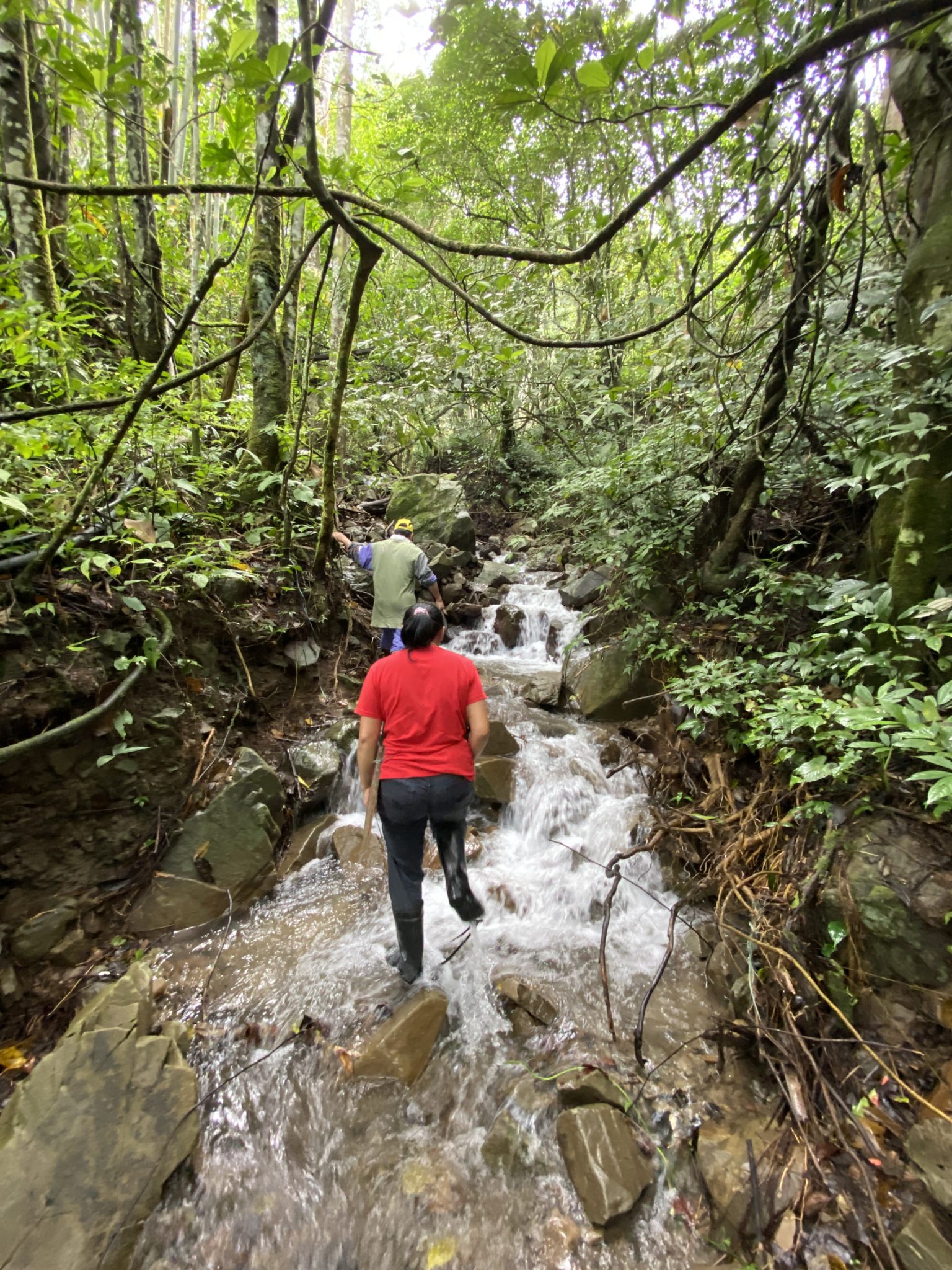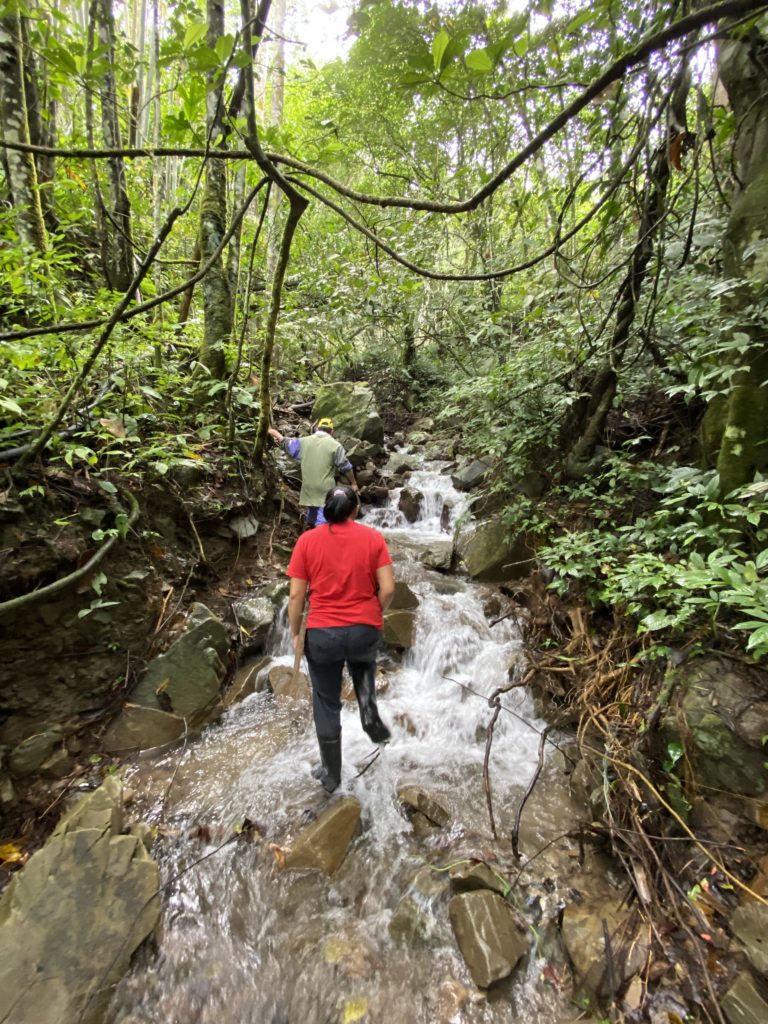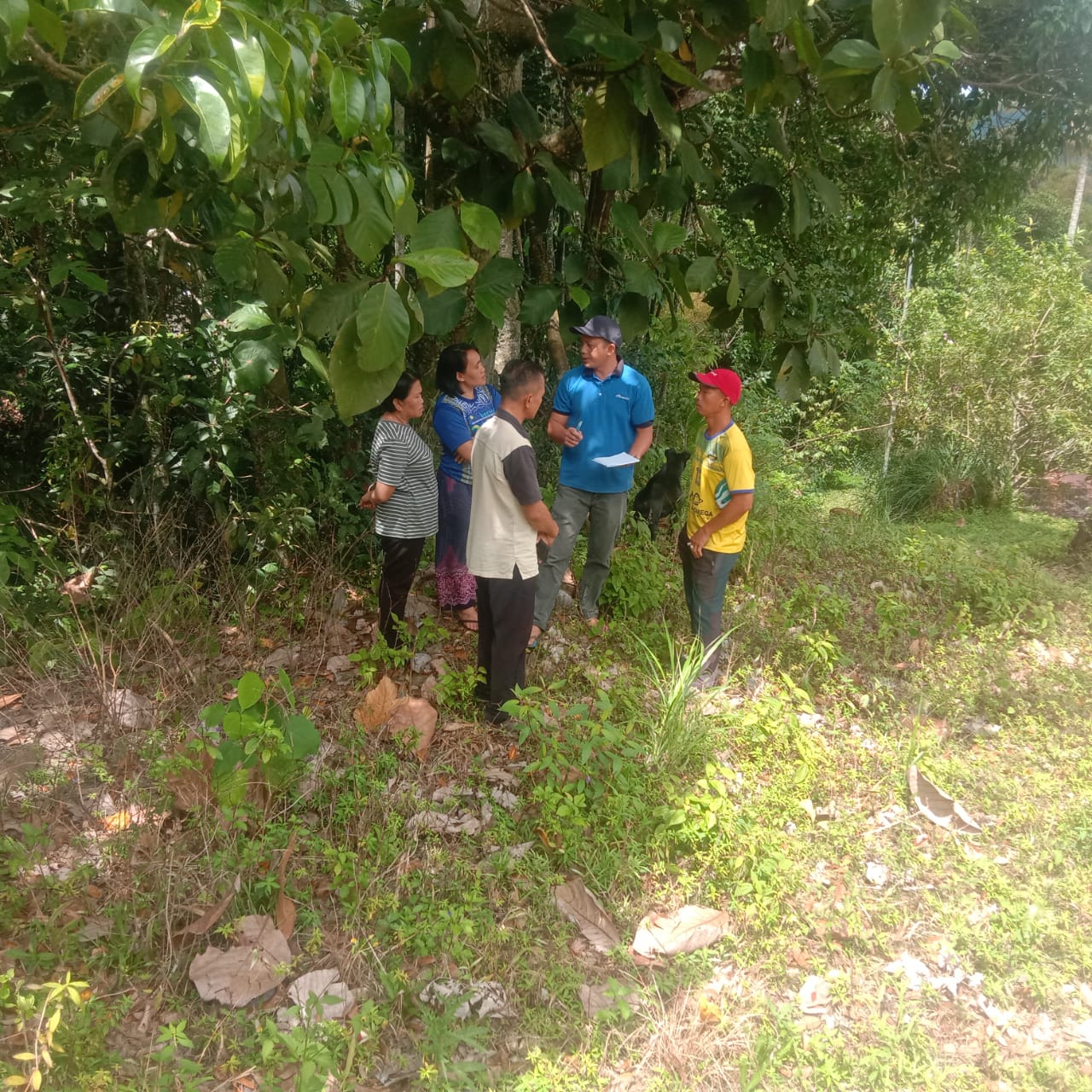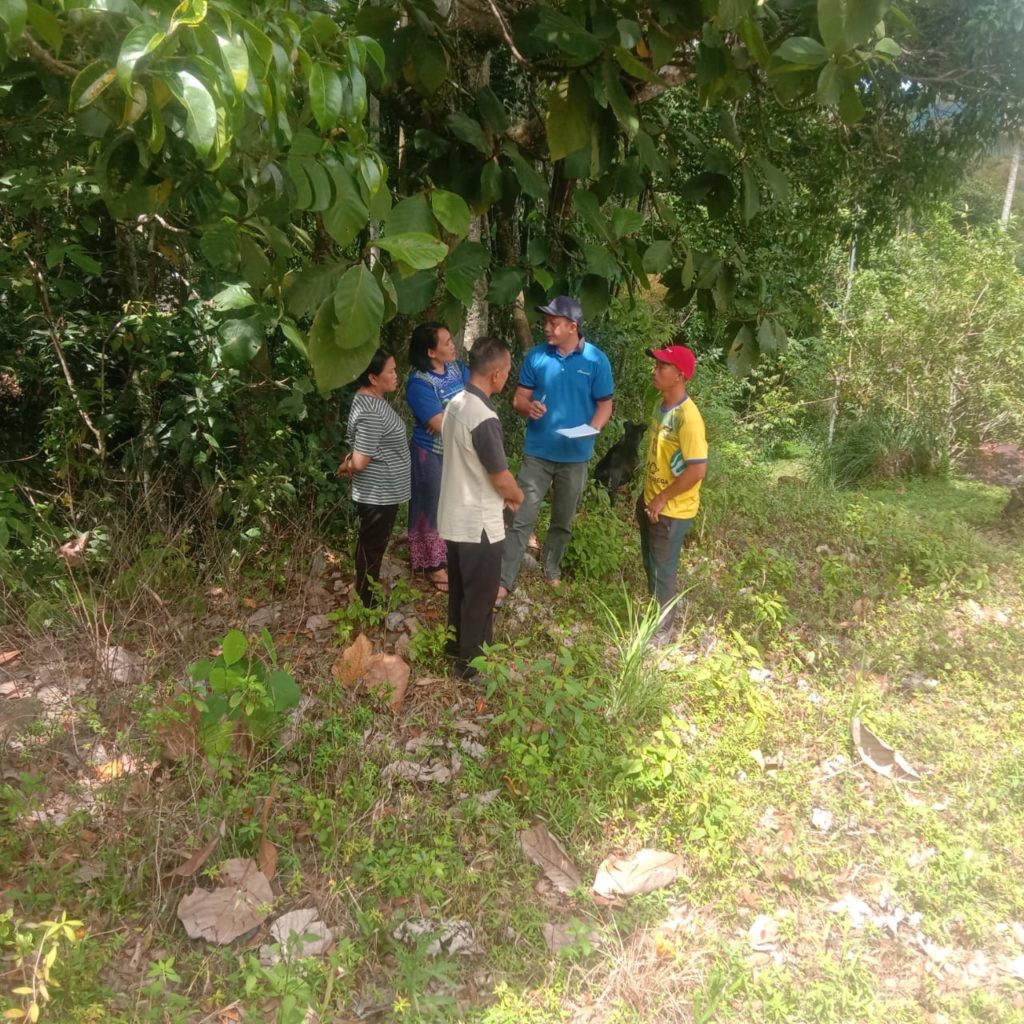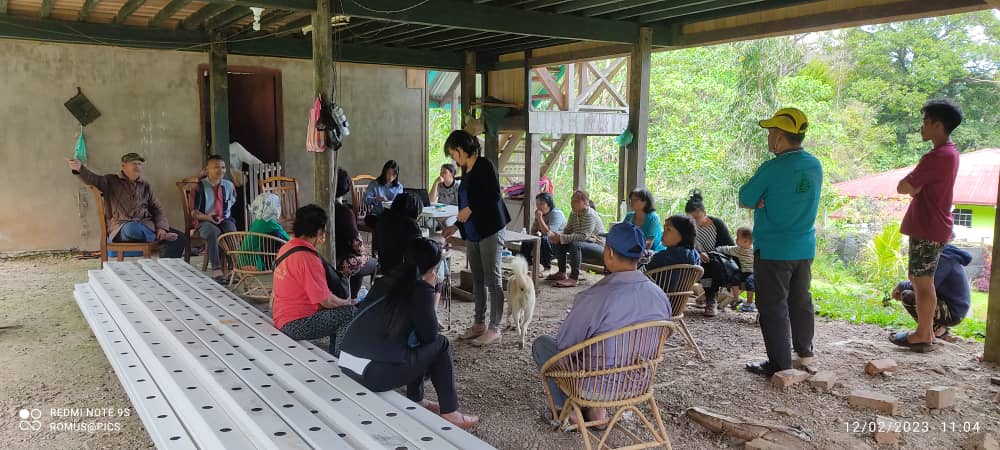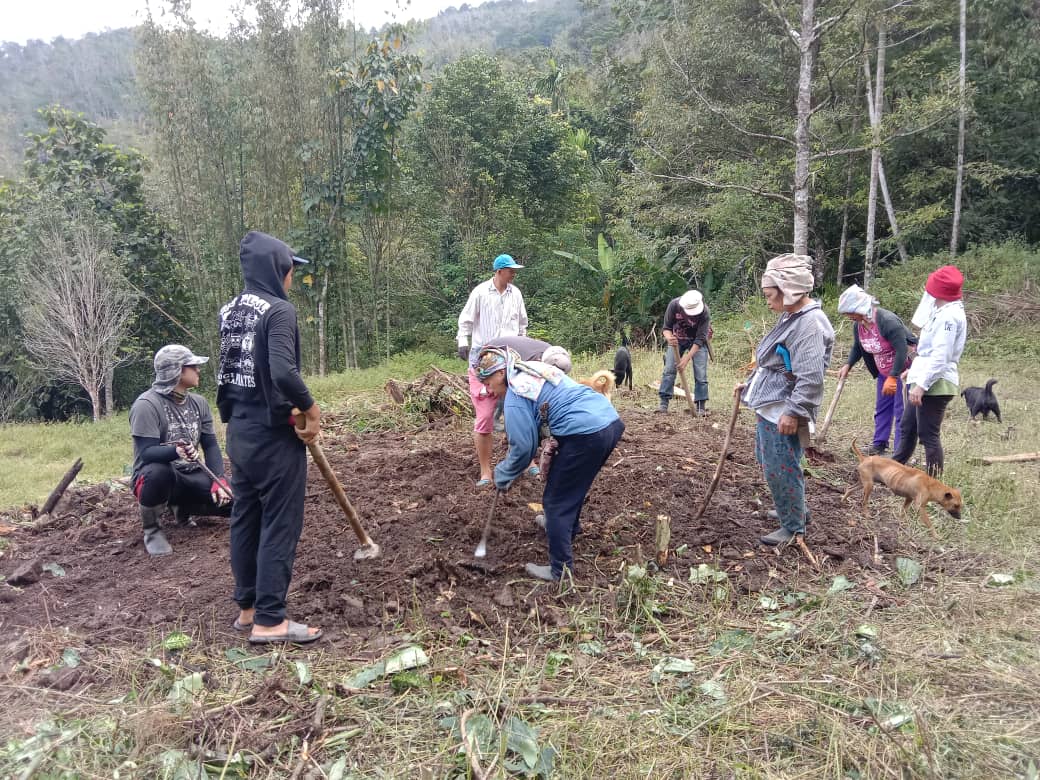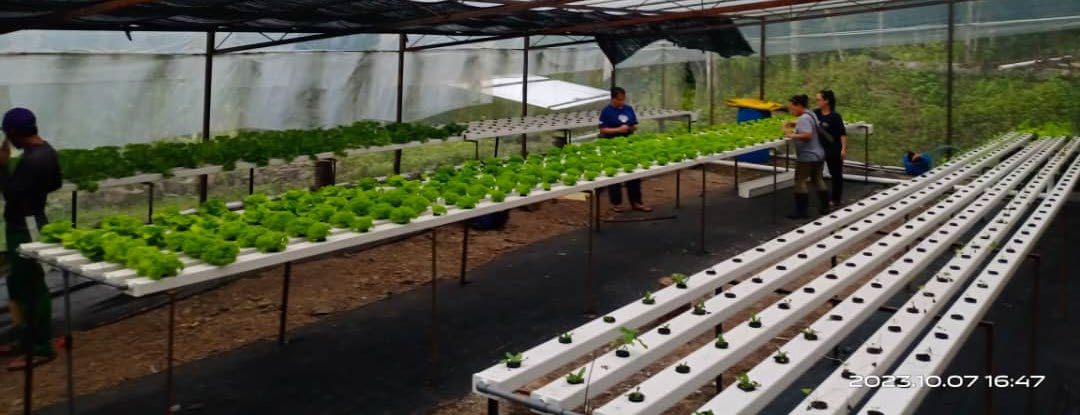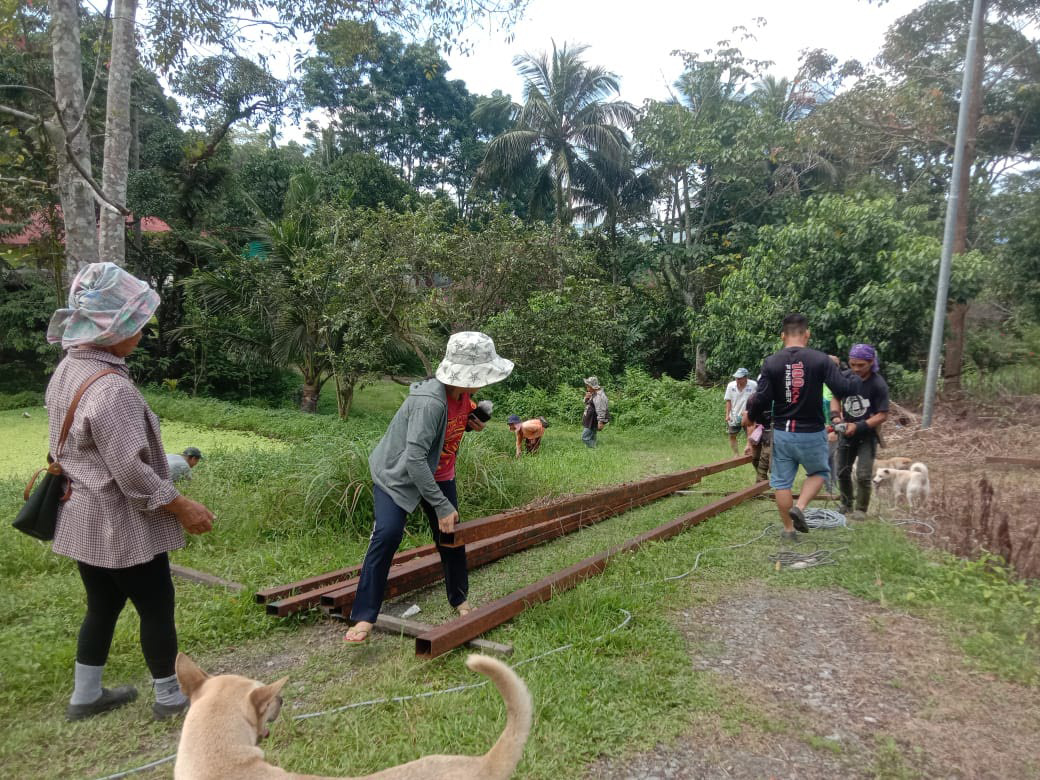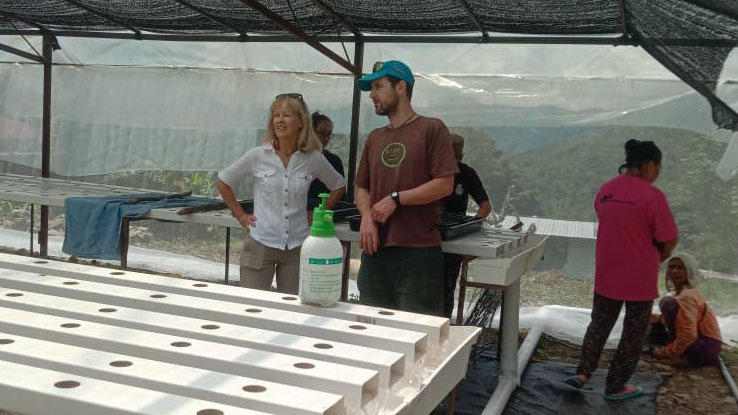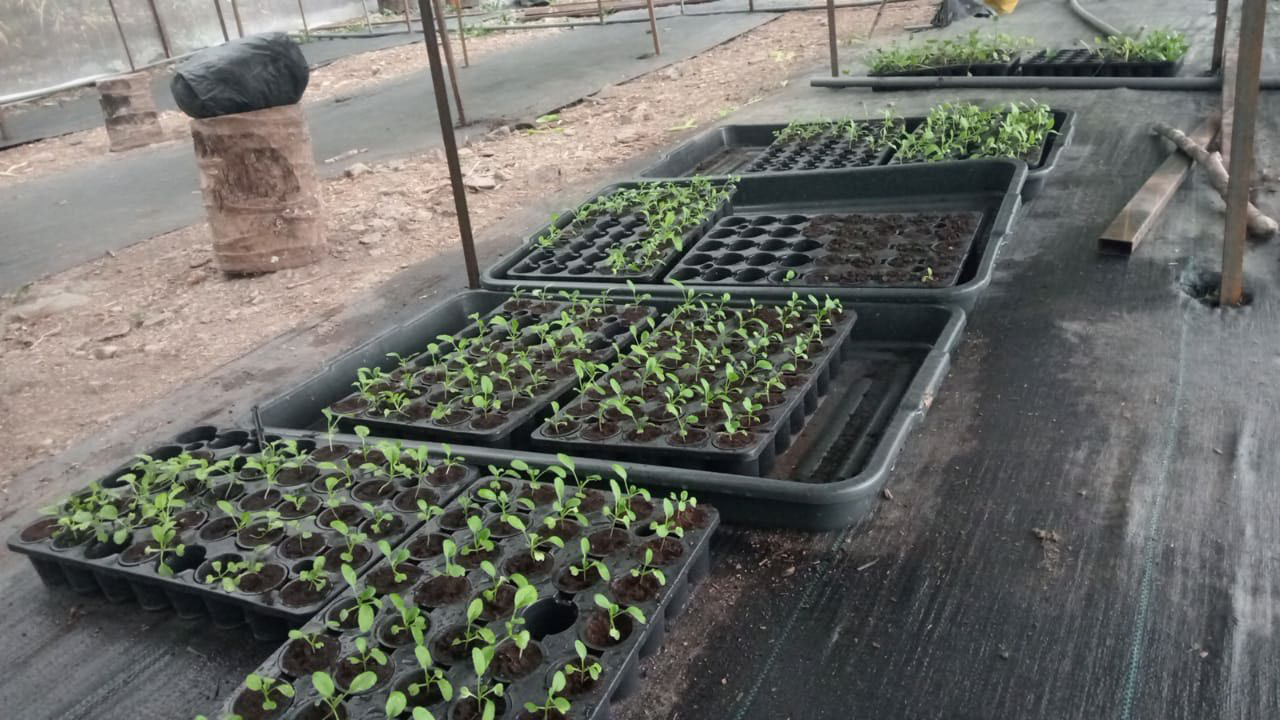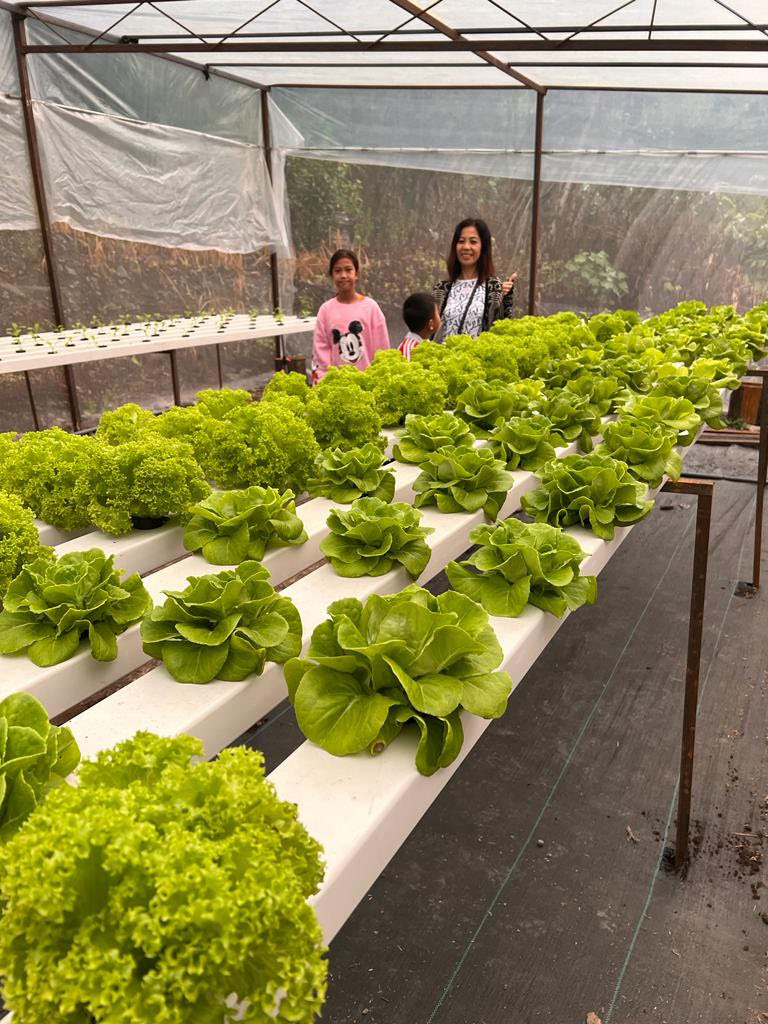The community of Tiong Karanaan sits in the foothills of the Crocker Range, which runs like a spine through northern Borneo. The forest here is largely undisturbed. But much of Borneo’s magnificent tropical forest—one of the most biodiverse ecosystems in the world—has already been cleared. Borneo plants and animals are at high risk from agriculture, hunting, logging, pollution, invasive species, and climate change.
The village has about 150 residents, who speak and identify as Dusun, an indigenous ethnic community. Their main livelihood comes from growing hill rice, small fruit and vegetable crops, and rubber. The average monthly income is around $120. Villagers grow some pineapple and rubber in the forested hills above the village, but they have protected the area from commercial logging. They know that this watershed is essential to the community’s water supply.
The village has committed to protecting its 42-acre part of the forest. This area is extra-valuable because it borders the 4,900-acre Tinompok Forest Reserve. These forests are home to several kinds of civet cats, monkeys, endemic squirrels, barking deer, and many plants used in traditional medicine.
The community will use a Seacology grant to support two initiatives to diversity villagers’ livelihoods: aquaponic agriculture to grow vegetables and fish, and ecotourism.
The village is well positioned to develop small-scale tourism, because it is only about a two-hour drive inland from the coastal city of Kota Kinabalu. In addition to the stunning rainforest, the area has a rich cultural history. Community members will rejuvenate a small jungle trail that passes key cultural heritage sites, including artifacts from the area’s history of headhunting. An abandoned hut is being turned into a place where visitors can stay overnight. The new multipurpose hall provides a place to welcome tourists, hold community meetings, and store supplies.
Our local project partners are the Kokoriu Training Center and the Tiong Karanaan Village Association.


